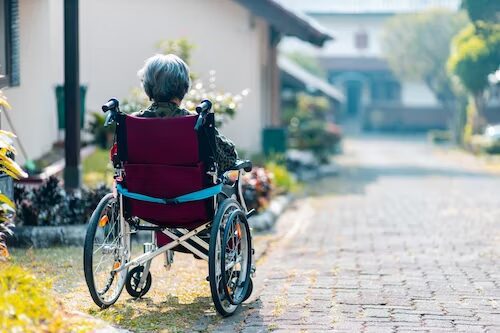The Evolving Landscape
As the demographics of the global population undergo a significant shift, with people living longer than ever before, the responsibilities associated with caring for aging parents have evolved considerably. The dynamics of caregiving have transformed from the traditional models of past generations. This article explores how caring for aging parents has changed over time and delves into the challenges that make this task increasingly complex in the contemporary world.
Historical Perspective

In the past, caring for aging parents was often an integral part of the family structure. Extended families living in close proximity allowed for a natural distribution of caregiving responsibilities among siblings, children, and relatives. Cultural norms and societal expectations reinforced the idea that adult children had a duty to care for their aging parents, and it was not uncommon for multiple generations to cohabit in a single household.
However, several factors have contributed to a shift away from this historical model. Economic forces, such as urbanization and globalization, have led to the dispersion of families, making it more challenging for adult children to be physically present to care for their aging parents. Moreover, the rise of individualism and changing societal values have altered the perception of familial obligations, impacting the willingness of younger generations to take on the role of primary caregiver.
The Changing Landscape
In contemporary society, the traditional model of caregiving for aging parents has given way to more diverse and complex arrangements. Nuclear families, consisting of parents and their children, are now common, and the expectation that children will automatically care for their aging parents has diminished. As a result, new challenges have emerged, reshaping the landscape of eldercare.
Geographic Distance
One of the most significant changes in recent decades is the physical separation of families. Globalization has led to job opportunities and educational pursuits that often require individuals to move away from their hometowns or even their home countries. This geographic distance poses a substantial challenge for adult children who wish to care for their aging parents. Balancing the demands of a career or education with the responsibility of caregiving becomes a complex juggling act.
Financial Pressures
Economic realities also play a crucial role in the evolving dynamics of eldercare. In the past, multigenerational households provided a shared financial support system. However, contemporary economic pressures, such as rising living costs and the need for dual-income households, can limit the financial resources available for caregiving. As a result, adult children may find it challenging to afford the necessary support and healthcare services for their aging parents.
Changing Family Structures
The definition of family has expanded, encompassing various structures beyond the traditional nuclear family. Blended families, single-parent households, and same-sex couples with children are now prevalent. While these diverse family structures offer unique strengths, they can also complicate the caregiving dynamic. Negotiating caregiving responsibilities in non-traditional family setups requires open communication and careful consideration of each family member’s role.
Increased Life Expectancy and Healthcare Needs
Advancements in healthcare have contributed to increased life expectancy, but they have also led to a rise in chronic health conditions among the elderly. Caring for aging parents today often involves managing complex medical needs and navigating an intricate healthcare system. The emotional and physical toll on caregivers is amplified when dealing with conditions such as dementia or Alzheimer’s, requiring a level of expertise and patience that previous generations may not have encountered to the same extent.

Challenges in Caring for Aging Parents
Emotional and Psychological Impact
Caring for aging parents can take a toll on the emotional and psychological well-being of caregivers. Witnessing the decline in a parent’s health, dealing with the challenges of cognitive impairment, and grappling with the eventual loss can lead to stress, anxiety, and even depression. The emotional burden is compounded by the sense of responsibility and guilt that caregivers may feel, especially if they are unable to provide the level of care they believe their parents deserve.
Balancing Work and Caregiving
Many adult children find themselves in the “sandwich generation,” caught between the demands of their careers and the responsibilities of caring for both their children and aging parents. Juggling work commitments with caregiving duties can result in burnout, strained relationships, and financial stress. Employers and workplaces, though increasingly recognizing the challenges faced by caregivers, may not always provide the necessary flexibility and support.
Financial Strain
The cost of caregiving, including medical expenses, home modifications, and professional assistance, can impose a significant financial burden on families. In some cases, adult children may need to make sacrifices, such as reducing work hours or forgoing career opportunities, to meet the demands of caregiving. The financial strain is heightened for those who are already grappling with their own retirement planning and future financial stability.
Navigating Healthcare Systems
The complexity of modern healthcare systems can be overwhelming for caregivers. Coordinating medical appointments, managing medications, and understanding insurance coverage are tasks that require time, effort, and often a degree of expertise. Navigating the intricacies of healthcare becomes an added challenge for those unfamiliar with the system or living in areas with limited access to healthcare resources.

Not An Easy Job
Caring for aging parents can be an emotionally and physically demanding responsibility, and caregivers often find themselves in need of support and relief. Fortunately, various resources and assistance programs exist to help alleviate the challenges faced by those providing care to their elderly loved ones.
Support Groups
Caregiver support groups offer a valuable platform for individuals to connect with others facing similar challenges. These groups provide a space to share experiences, exchange advice, and find emotional support. Whether in-person or online, support groups can help caregivers feel less isolated and offer a sense of community.
Professional Caregiver Services
Hiring professional caregiver services can provide much-needed respite for family caregivers. These services range from in-home care providers who assist with daily tasks to adult daycare centers that offer supervised activities for elderly individuals. Enlisting professional help allows caregivers to take a break, attend to personal matters, or simply recharge.
Financial Assistance Programs
Several government and non-profit organizations offer financial assistance programs to support caregivers. These programs may include grants, subsidies, or tax breaks designed to ease the financial burden associated with caregiving. Exploring available financial assistance options can allow caregivers to access necessary resources without compromising their financial stability.
Educational Resources
Many caregivers face the challenge of navigating complex healthcare systems and understanding the medical needs of their aging parents. Educational resources, workshops, and training programs are available to help caregivers acquire the knowledge and skills necessary for effective caregiving. These resources empower caregivers to provide better care and make informed decisions about their loved one’s well-being.
Respite Care
Respite care programs offer temporary relief to caregivers by providing trained professionals who can step in and care for the elderly individual. This allows caregivers to take breaks, attend personal appointments, or simply take time for self-care. Respite care is crucial in preventing caregiver burnout and ensuring that the caregiver’s own well-being is prioritized.
Technology and Apps
Advancements in technology have led to the development of apps and tools designed to assist caregivers. These may include medication management apps, telehealth services, and platforms for coordinating care among family members. Leveraging technology can streamline caregiving responsibilities and make the caregiving journey more manageable.
Community and Faith-Based Support
Community organizations, religious institutions, and faith-based groups often provide support for caregivers. These entities may offer volunteer services, meal delivery programs, or other forms of assistance to help lighten the caregiver’s workload. Seeking support from local communities can create a network of aid for caregivers.
There Is Help
Caring for aging parents has undergone a profound transformation from the traditional models of past generations. The challenges associated with this responsibility have become more intricate due to factors such as geographic distance, financial pressures, changing family structures, increased life expectancy, and the evolving landscape of healthcare. As the global population continues to age, addressing these challenges requires a multifaceted approach involving societal, familial, and governmental support systems. Recognizing and adapting to the changing dynamics of eldercare is essential to ensure that the growing population of aging individuals receives the care and support they need while also safeguarding the well-being of those undertaking the role of caregivers.


